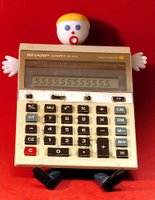The Country Music Marathon: Mixing Passions Promotes Marketing
Now a decade old, the Country Music Marathon demonstrates a key marketing principle: Mixing Passions.
If you like to run and you like country music, you were in Nashville last weekend, pounding up and down the rolling terrain of the Music City. In all, more than 32,000 runners competed, colorfully clogging the city's arteries and flooding the economy with millions in tourist cash.
The marathon's incredible success - for the competitors, the city and the promoters - feeds on both running and music. Country music performers were strategically placed around the course to entertain the runners. Makes no difference that the runners only heard a few bars of a song as they dashed by; the creative combination of the two passions was enough to bring them to Nashville. (As if to compensate, all runners got into an evening concert free. )
If your service or product can be linked to another activity or idea that people love, consider the link. It might just give your marketing legs.
Labels: country music, ggcb, marathon, marketing, Nashville, running



